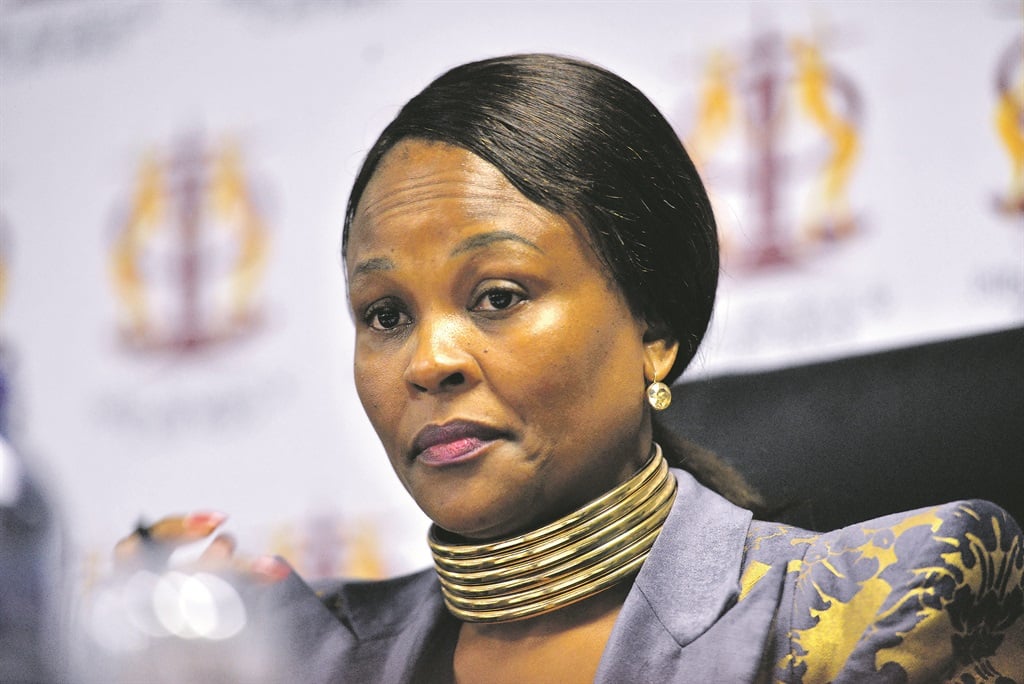
South Africa’s Constitution entrenches human rights and enjoins citizens of the country to unite.
Efficient and effective service delivery and social cohesion are the indicators of realising a respect for human rights and a united South Africa.
The Constitution also establishes Chapter 9 institutions to champion the cause of realising human rights and achieving a united nation.
The SA Human Rights Commission (SAHRC) promotes and protects human rights, monitors and assesses the observance of human rights and has powers to take steps to secure appropriate redress where human rights have been violated.
The Commission for the Promotion and Protection of the Rights of Cultural, Religious and Linguistic Communities (CRL Rights Commission) has to promote the rights of cultural, religious and linguistic communities and may report any matter which falls within its powers and functions to the SAHRC, which has the powers to deal with the rights of cultural, religious and linguistic communities.
The Commission for Gender Equality (CGE) has to promote respect for gender equality and may, at any stage, refer any gender-related matters to the SAHRC and Public Protector to deal with it in accordance with the provisions of the Constitution and the law. This means that the SAHRC and PP have the powers to deal with gender-related issues.
The Public Protector has to investigate conduct in state affairs or in public administration alleged or suspected to be improper or resulting in impropriety or prejudice.
The Public Protector has to foster an accountable and responsive public administration, and to protect the people and country from abuse and victimisation by those in positions of authority, and has powers to take remedial action.
The Auditor-General has a responsibility to ensure openness, accountability and propriety in the use of public funds, while the Independent Electoral Commission (IEC) has to manage and ensure free and fair elections.
It has to foster peace and harmony before and during elections and thus nurture a united and democratic South Africa.
These institutions are concerned with social cohesion and service delivery based on the promotion and protection of human rights. They are, however, too fragmented to make the desired impact which is to see the achievement of human rights and unity.
To accelerate service delivery and social cohesion it is important that the institutions whose mandates are more glued to one another merge.
Their consolidation will also achieve compliance with the constitutional principle of efficient, economic and effective use of resources.
The Constitution can be amended and the legislation repealed which forms the SAHRC, CGE, PP and CRL Rights Commission to make way for a single new institution called the human rights and good governance commission (HRGGC).
An amendment to the Pan South African Language Board (PanSALB) Act, which provides for investigation of alleged or the threat of violation of language rights can assign those functions to the new institution.
PanSALB’s investigative function should be limited because of the service delivery, social cohesion and human rights link.
The HRGGC Act can be administered by the minister of planning, monitoring and evaluation.
AGSA, IEC and PanSALB can retain their status quo.
To move away from the current position of each institution having national and provincial offices, the HRGGC should have one office per province and only one national office.
This will save the state millions of rands in operational budget.
The current minimum number of board members of the four institutions is 30, with a maximum of 40. The proposed merger could reduce the members of the new body to about 12.
When the terms of office of the board members at the four institutions end, interim boards should be appointed until the merger is complete.
During restructuring, job losses can be avoided by transferring the majority of employees to new provincial offices and offer them training and set time frames for self-empowerment through education.
To increase capacity and aptitude at provincial offices, such offices can take the structure of government departments and/or the Public Service Commission. Proper and adequate consultation should be conducted with employees and unions, this will save money and avoid unnecessary duplication of work.
The new body can be divided into four programmes: gender equality; socioeconomic rights; community rights; and governance and administration.
Sedupane is an admitted advocate of the high court
TALK TO US
Can a merger of Chapter 9 bodies improve their efficiency?
SMS us on 35697 using the keywords CHAPTER 9 and tell us what you think. Please include your name and province. SMSes cost R1.50




 Publications
Publications
 Partners
Partners








